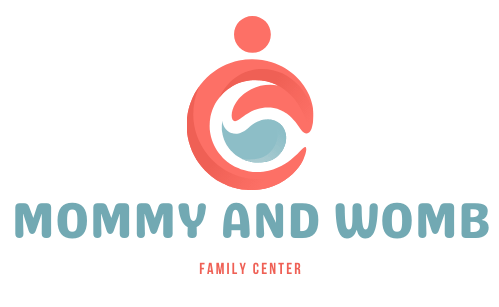Miscarriage Confronting: Critical Causes and Key Risk Factors Explained

Loss of a pregnancy before 20 weeks is a tough experience many face. It’s important to know you’re not alone. Miscarriage, or spontaneous abortion, affects 10-20% of pregnancies. Some studies say it could be as high as 30-40%.
The emotional pain can be huge. But, most miscarriages aren’t because of anything you did or didn’t do. They usually happen in the first trimester, before the 12th week. Knowing the reasons can help you heal and look forward to a future pregnancy.
Table of Contents
Understanding Miscarriage and Early Pregnancy Loss
Pregnancy loss before 20 weeks is called a miscarriage. Sadly, 10-20% of pregnancies end this way. But, the real number might be higher because many happen early, before a woman knows she’s pregnant. Over 80% of miscarriages occur in the first trimester or by the 14th week.
Defining Pregnancy Loss Before 20 Weeks
Miscarriage, or early pregnancy loss, is when a pregnancy ends before 20 weeks. These terms mean the same thing. They describe losing a pregnancy in the first or second trimester.
Statistics and Occurrence Rates
About 2-3% of pregnancies are lost in the second trimester. Less than 0.5% are lost after 20 weeks. Even though miscarriage is commonhttps://medlineplus.gov/miscarriage, most women can have healthy pregnancies later5.
Impact on Future Pregnancies
Having one miscarriage doesn’t mean you’ll have another. The chance of miscarriage in future pregnancies is the same as for anyone else. But, losing two or more pregnancies in a row affects 1-2% of women.
“Miscarriage is a heartbreaking experience, but it’s important to know that it’s not your fault and that you’re not alone. With proper support and care, many women who have experienced a miscarriage go on to have healthy pregnancies in the future.”
Types of Pregnancy Loss and Their Characteristics
Miscarriage, or spontaneous abortion, is a complex and sensitive topic. There are several types of pregnancy loss, each with its own characteristics. Knowing these variations is key for proper diagnosis and management.
A threatened miscarriage shows vaginal bleeding with a closed cervix. This means a miscarriage might happen but isn’t certain. Incomplete miscarriage means some pregnancy tissues are expelled, but not all. A complete miscarriage is when all tissues are expelled. An asymptomatic miscarriage, or ‘missed miscarriage,’ is when the fetus dies but the body hasn’t expelled the tissues yet.
Chemical pregnancies are early losses before 6 weeks, often before a positive test. Septic miscarriages involve an infection, which is serious. Recurrent pregnancy loss, with two or more miscarriages in a row, needs special care and investigation.
It’s important for healthcare providers to know about the different types of pregnancy loss. This helps them give accurate diagnoses, treatments, and management plans6. Understanding these types also supports those going through the emotional and physical challenges of pregnancy loss.
Common Causes of Miscarriage
Miscarriage is when a pregnancy ends before 20 weeks. It’s important to know why it happens. This knowledge helps in preventing and treating miscarriages. We’ll look at the main reasons, like genetic problems, structural issues, and medical conditions.
Chromosomal Abnormalities
Chromosomal problems are a big reason for miscarriages, making up to 70% of cases. These genetic issues can cause the fetus to not grow right or the placenta to grow too much. About 80% of miscarriages happen in the first 12 weeks. This shows how big a role chromosomal problems play in early pregnancy loss.
Structural Problems
Uterine and cervical problems can also cause miscarriages. Issues like a septate uterus or fibroids can block the embryo from growing. These problems can make it hard for the embryo to implant or grow right.
Medical Conditions
Some medical conditions, like autoimmune diseases or diabetes, can lead to miscarriage. These conditions can make it hard for the body to support the growing fetus. Treating these health issues is key to lowering the risk of miscarriage.
Knowing why miscarriages happen helps us take steps to prevent them. This knowledge helps both individuals and healthcare providers. It can lead to better outcomes for future pregnancies.
“Miscarriage is a heartbreaking experience, but it’s important to remember that it’s often not the result of something you did wrong. Understanding the common causes can empower you to make informed decisions and seek the necessary support.”
Uterine and Cervical Issues Leading to Pregnancy Loss
Uterine and cervical problems can lead to pregnancy loss, especially after 12 weeks. Issues like cervical insufficiency, uterine abnormalities, and fibroids can weaken the uterus and cervix. This can cause miscarriages at any time.
A septate uterus is a common issue that can cause miscarriages to happen again and again. This problem, where the uterus is split by a wall, makes it hard for a fetus to grow. Surgery might be needed to fix this and help a pregnancy succeed.
Cervical insufficiency makes the cervix open too early, leading to miscarriages in the second trimester. Doctors might use cervical cerclage to keep the pregnancy going.
Uterine fibroids and polyps can also cause problems. They can make it hard for a baby to implant and grow. Sometimes, removing these growths is advised to lower the risk of losing a pregnancy.
Fixing these uterine and cervical issues can greatly improve pregnancy chances. Getting regular prenatal care and catching problems early is crucial. It helps manage risks and supports a healthy pregnancy9.
Health Conditions That Increase Miscarriage Risk
Some medical conditions can greatly increase the risk of miscarriage. Autoimmune disorders like antiphospholipid syndrome and lupus can lead to pregnancy loss by messing with the body’s immune system. Conditions like diabetes, hypertension, and thyroid disorders also raise the risk of miscarriage.
Hormonal imbalances, such as polycystic ovary syndrome, can harm pregnancy chances. It’s important to manage these health issues before and during pregnancy to lower miscarriage risk.
Autoimmune Disorders
- Antiphospholipid syndrome (APS) is an autoimmune disorder that can cause blood clots and pregnancy complications, leading to an increased risk of miscarriage.
- Lupus, an autoimmune disease, can also contribute to miscarriage by causing inflammation and disrupting the normal functioning of the immune system.
Chronic Medical Conditions
- Uncontrolled diabetes can increase the chances of miscarriage due to the negative impact on fetal development and placental function.
- Hypertension (high blood pressure) during pregnancy has been linked to a higher risk of pregnancy loss.
- Thyroid disorders, both hypothyroidism and hyperthyroidism, can disrupt the delicate hormonal balance required for a healthy pregnancy.
Hormonal Imbalances
Polycystic ovary syndrome (PCOS) is a hormonal disorder that can contribute to miscarriage by causing ovulation problems and endometrial issues. Other hormonal imbalances, such as luteal phase defect, may also play a role in pregnancy loss.
“Comprehensive medical evaluation and management of any underlying health conditions is essential to reduce the risk of miscarriage and promote a healthy pregnancy.”
Lifestyle Factors and Environmental Risks
Smoking, drinking alcohol, and being exposed to harmful toxins can raise the risk of miscarriage. Smoking during pregnancy can lead to a 25% higher risk of losing the pregnancy. This is especially true for women exposed to warmer temperatures. Drinking alcohol can also harm the fetus and lead to early pregnancy loss.
Being around harmful environmental toxins like solvents and lead can harm a growing fetus. Being overweight, with a BMI of 30 or higher, also increases the risk of miscarriage12. High stress levels, both sudden and ongoing, can also contribute to pregnancy loss.
To have a healthy pregnancy, it’s important to tackle these lifestyle and environmental issues. Quitting smoking, drinking less alcohol, and avoiding harmful chemicals can lower the risk of miscarriage.,,

Working on these risk factors can greatly improve the chances of a successful pregnancy. By making smart choices and getting medical advice, people can reduce the impact of lifestyle and environmental factors on their pregnancy.
Age-Related Factors in Pregnancy Loss
Age is a big deal when it comes to pregnancy loss. Women over 35 face a higher risk of miscarriage. This risk jumps up a lot after 40. By 45, up to 50% of pregnancies might end in miscarriage14. Men’s age also matters, as studies show a higher risk of pregnancy loss when the father is over 40.
Maternal Age Considerations
More women aged 30 to 34 are having their first child, up by 28% from 2000 to 2014. Women over 35 having their first child saw a 23% increase. As women get older, their eggs get worse and there are fewer of them. By 37, there are about 25,000 eggs, and by 51, just 1,000.
This decline in egg quality and number raises the risk of miscarriage for older women. A good egg is key for successful fertility. The risk of Down syndrome goes up from 2% for women under 25 to almost 35% for women 35 or older14. Most early failed pregnancies and 35% of miscarriages are due to aneuploidy, or the wrong number of chromosomes. The risk of aneuploidy jumps 10 times after 40 compared to women under 25.
Paternal Age Impact
Paternal age also affects pregnancy loss. Some studies link higher miscarriage risk to fathers over 40. This could be due to lower sperm quality and more chromosomal problems.
Up to 15% of couples trying to conceive face fertility issues. Fertility drops with age, with the highest rates in women under 25 in some groups.
Age-related factors, like worse egg quality and more chromosomal issues, lead to higher pregnancy loss risks for both older women and men.
Infections and Their Role in Pregnancy Loss
Certain infections can threaten a healthy pregnancy, leading to miscarriage. Cytomegalovirus (CMV), parvovirus B19 (fifth disease), and listeriosis are infections that raise the risk of miscarriage15.
CMV infections are common in young children. They can harm unborn babies, causing hearing loss, visual problems, learning issues, and epilepsy. Group B streptococcus (GBS) can also infect babies during labor, leading to serious illness5.
Other infections, like toxoplasmosis, hepatitis B, hepatitis C, genital herpes, and HIV, can harm both mother and baby during pregnancy15. Keeping clean, eating safely, and getting prenatal care are key to avoiding infection-related pregnancy loss.
Recurrent miscarriage is linked to inflammation in the uterus. High levels of tumor necrosis factor-alpha (TNF-α), interferon-gamma (IFN-γ), and interleukin-6 (IL-6) can harm pregnancy outcomes.
Early detection and treatment of infections during pregnancy are vital to prevent miscarriage. Good hygiene, safe food, and regular prenatal care can lower the risk of infection-related miscarriage.
“Infections during pregnancy can lead to serious health problems for both the mother and the baby, including birth defects and lifelong disabilities. Preventive measures are essential to ensure a healthy pregnancy.”
Recurrent Miscarriage: Causes and Risk Factors
Recurrent pregnancy loss, or losing two or more pregnancies in a row, happens to about 1-2% of couples. It can be caused by many things, like genetic issues, problems with the uterus, hormonal imbalances, or autoimmune diseases. Sadly, in about 50% of cases, doctors can’t find a clear reason, which makes it hard to treat18.
Doctors use tests like genetic screening, ultrasound, and hormone checks to find out why miscarriages happen. They try to find any issues that might be causing the problem. Then, they can suggest treatments like special medicines, surgery, or changes in lifestyle. Finding the right treatment can be tricky because the definition of recurrent miscarriage isn’t always clear.
Even though only 0.5% to 1% of pregnancies end in recurrent miscarriage19, it can really affect a couple’s mental health. They might feel sad, anxious, or have low self-esteem, and it can strain their relationship19. It’s very important for couples to get help from doctors and mental health experts during this tough time19.
If you want to read more about how to get pregnant, click on this link
https://www.mommyandwomb.com/getting-pregnant
FAQ
What are the causes of miscarriage?
What is the definition of pregnancy loss before 20 weeks?
What are the different types of miscarriages?
What are the common causes of miscarriage?
How do uterine and cervical issues lead to pregnancy loss?
What health conditions increase the risk of miscarriage?
How do lifestyle factors and environmental risks contribute to miscarriage?
How does age impact the risk of pregnancy loss?
Can infections cause miscarriage?
What are the causes and risk factors for recurrent miscarriage?
Source Links
- https://www.marchofdimes.org/find-support/topics/miscarriage-loss-grief/miscarriage
- https://www.webmd.com/baby/pregnancy-miscarriage
- https://health.ucdavis.edu/blog/cultivating-health/what-you-should-know-about-miscarriage-signs-causes-and-more/2024/07
- https://www.mayoclinic.org/healthy-lifestyle/pregnancy-week-by-week/expert-answers/early-miscarriage/faq-20058214
- https://medlineplus.gov/miscarriage.html
- https://www.uptodate.com/contents/pregnancy-loss-miscarriage-terminology-risk-factors-and-etiology
- https://www.mountsinai.org/health-library/diseases-conditions/miscarriage
- https://en.wikipedia.org/wiki/Miscarriage
- https://www.ncbi.nlm.nih.gov/books/NBK430747/
- https://www.parents.com/pregnancy/complications/miscarriage/what-does-and-doesnt-cause-miscarriage/
- https://pmc.ncbi.nlm.nih.gov/articles/PMC10656765/
- https://pmc.ncbi.nlm.nih.gov/articles/PMC11279235/
- https://www.frontiersin.org/journals/public-health/articles/10.3389/fpubh.2023.1238275/full
- https://www.ncbi.nlm.nih.gov/books/NBK576440/
- https://www.nhs.uk/pregnancy/keeping-well/infections-that-may-affect-your-baby/
- https://medlineplus.gov/infectionsandpregnancy.html
- https://journals.viamedica.pl/ginekologia_polska/article/download/97320/76158
- https://www.uptodate.com/contents/recurrent-pregnancy-loss-definition-and-etiology
- https://www.upmc.com/services/womens-health/conditions/recurrent-miscarriage






